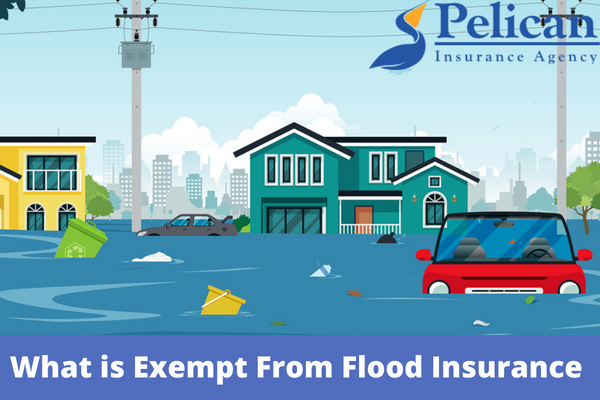What is Exempt From Flood Insurance Requirements

If you live on the coast, there is a chance that you could experience a flood disaster. Flood disasters are not something we like to think about, but they can happen anytime. And do you know the things you need to do when your property starts flooding? It hurts significantly if you get your possessions damaged by water because of not the preventive measures. You will be wise to have flood insurance during dangerous disasters to protect your household items and property. This could also help save you from financial loss as well. However, there are some exceptions to getting one.
Detached Residential Buildings, Semi-detached, or Townhouse Construction
Residential buildings detached, semi-detached or townhouse construction are exempted from flood insurance requirements. This is because of how these buildings are constructed. In a typical residential building, the foundation and first floor are built on a concrete slab that is then covered with dirt. The ground level of a detached home is usually made up of this concrete slab and dirt, while a semi-detached or townhouse would have the same foundation but an additional floor built on top of it.
Flood insurance policies require that you build your home at least one foot above your area’s base flood elevation (BFE). However, suppose any part of your home’s foundation sits below this BFE level. In that case, it will not be covered by flood insurance policies despite being elevated above ground level by one foot or more. For this reason, detached homes built on slabs were not required to carry flood insurance policies until recently when FEMA decided to change their regulations for these types of homes (and others).
Commercial Buildings and Their Contents
Commercial buildings are constructed to withstand flooding and have been designed to keep water out of the building. While floods can still damage the contents within the building, this is not considered a flood-related event. Floods are caused by heavy rains or other weather phenomena that cause water levels in streams and rivers to rise and overflow onto land. Flood insurance is required for those who live in a residence that is not designated as commercial property. To qualify for an exemption from flood insurance requirements, you must apply with your lender or mortgage company before you close on any property purchase.
Agricultural Buildings and Their Contents
Agricultural buildings and their contents are exempt from flood insurance requirements. This is because the purpose of these structures is to house agricultural equipment, livestock, and supplies necessary for growing crops and raising livestock. If such a building were to be damaged by flooding, it would be difficult for owners to continue their lives without the building in question. Flood insurance is often a requirement for mortgage holders who have purchased homes in areas where flooding is possible. This is to protect lenders from paying for flood damages out of pocket if one of their borrowers’ homes becomes flooded.
How Are They Evaluating This Exemption?
You must get flood insurance if you reside in a region where there is a 1% annual increase in the risk of flooding. Flood insurance is needed because the Federal Emergency Management Agency (FEMA) pays only for flood damage caused by rising water levels resulting from heavy rain, rising tides, and other natural events. However, there are some instances when you can be exempt from these requirements. Call Pelican Insurance Agency now so we can talk more about how they consider this exemption!